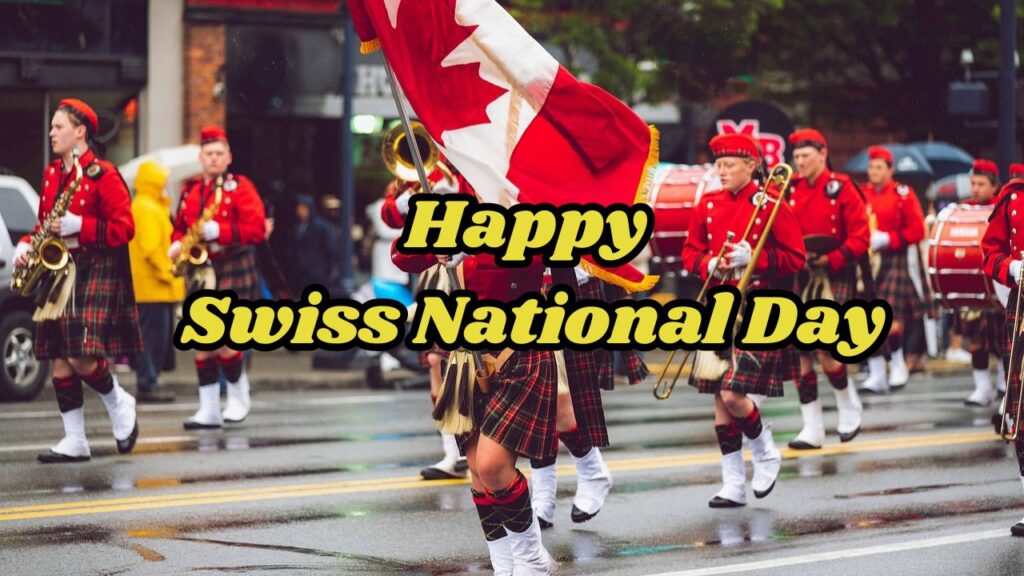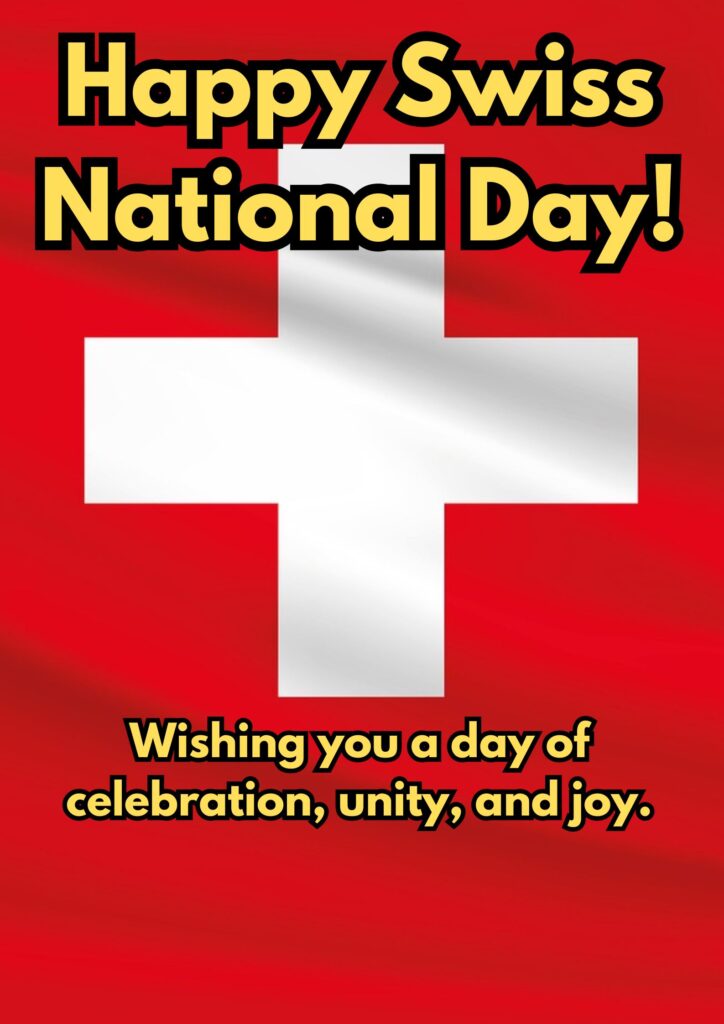Swiss National Day 2024: Fireworks Zurich, Events, History and 10 Best Food

What is Swiss National Day
August 1st marks Swiss National Day, honoring the establishment of the Swiss Confederation in 1291. The day marks the signing of the Federal Charter by the three cantons of Uri, Schwyz, and Unterwalden, which formed a pact of mutual defense against external threats. This event is considered the foundation of modern Switzerland.
Swiss National Day 2024
Swiss National Day, celebrated on August 1st each year, marks the founding of the Swiss Confederation in 1291. This date commemorates the signing of the Federal Charter of 1291, which united three cantons in a pact of mutual defense.
Swiss National Day fireworks zurich, Swiss National Day zurich, Swiss National Day fireworks
On Swiss National Day, Zurich hosts a variety of celebrations, including an impressive fireworks display. Here’s what you can expect:
- Fireworks Display: The main highlight is the grand fireworks show over Lake Zurich. The display usually starts around 10 p.m., attracting both locals and tourists. Prime viewing spots include the lakefront areas, such as Bürkliplatz, Bellevue, and the Quaibrücke bridge.
- Festivities at the Lake Promenade: Throughout the day, the lake promenade comes alive with various activities, including food stalls, music performances, and family-friendly events. You can enjoy traditional Swiss food, listen to live music, and participate in games and activities.
- Parades and Cultural Events: Zurich often hosts parades and cultural events featuring traditional Swiss music, costumes, and dances. These events provide a glimpse into Swiss heritage and traditions.
- Community Gatherings and BBQs: Many people celebrate with family and friends by having barbecues and picnics in parks and public spaces around the city.
- Bonfires: In addition to fireworks, bonfires are lit in various parts of Zurich, symbolizing the historical signaling fires used in the Alps.
These celebrations make Zurich a vibrant and exciting place to be on Swiss National Day, offering a mix of cultural experiences and spectacular fireworks.
Happy Swiss National Day

Here are ten greetings to mark Swiss National Day:
- Happy Swiss National Day! May the essence of togetherness and liberty keep motivating each of us.
- Here’s to a joyful and festive Swiss National Day brimming with pride and happiness for all!
- Happy Swiss National Day! Let’s celebrate the rich heritage and beautiful culture of Switzerland.
- May the fireworks light up the sky and our hearts with joy and pride on this special day. Happy Swiss National Day!
- Cheers to a prosperous and peaceful future for Switzerland. Happy Swiss National Day!
- Wishing you a day of celebration, unity, and joy. Happy Swiss National Day!
- Happy Swiss National Day! May the traditions and values of Switzerland continue to thrive.
- May this Swiss National Day bring happiness, love, and prosperity to everyone.
- Happy Swiss National Day! Let’s pay tribute to our past and anticipate a promising future ahead.
- Wishing all Swiss citizens a wonderful and memorable National Day. Happy Swiss National Day!
Swiss National Day celebration, Swiss National Day events
Swiss National Day, celebrated on August 1st, marks the founding of the Swiss Confederation. Here’s a detailed look at how this special day is celebrated across Switzerland:
Key Elements of Swiss National Day Celebrations:
- Fireworks and Bonfires:
- The highlight of the day is the spectacular fireworks displays held in various cities and towns, with one of the most notable being over Lake Zurich.
- Traditional bonfires are lit on hills and mountainsides, symbolizing historical signaling fires.
- Parades and Processions:
- Many cities and towns organize parades featuring traditional Swiss music, costumes, and dance performances.
- Participants often include local clubs, community groups, and folk ensembles, showcasing Switzerland’s diverse cultural heritage.
- Community Gatherings and Events:
- Public celebrations often include outdoor festivals with food stalls, games, and live music.
- Families and friends gather for picnics and barbecues in parks and public spaces, enjoying traditional Swiss dishes like raclette, fondue, and sausages.
- Official Ceremonies and Speeches:
- Political leaders and dignitaries give speeches reflecting on the nation’s history, values, and future.
- Ceremonies often take place in significant historical locations or public squares.
- Traditional Music and Folk Dances:
- Performances of alphorn music, yodeling, and other traditional Swiss music forms are common.
- Folk dance groups perform traditional dances in colorful costumes.
- Special Activities for Children:
- Activities such as games, face painting, and crafts are planned to captivate and delight children.
- Families often participate in lantern parades, where children carry illuminated lanterns in the evening.
- Decorations and Symbols:
- Swiss flags are prominently displayed on buildings, streets, and homes.
- Many people wear red and white clothing, reflecting the national colors.
- Culinary Delights:
- Local specialties and traditional Swiss foods are enjoyed throughout the day, from street vendors to family gatherings.
- Common treats include Swiss chocolate, pastries, and various regional dishes.
- Sporting Events and Competitions:
- Classic Swiss sports like wrestling (Schwingen), stone throwing (Steinstossen), and hornussen (a traditional team sport) are frequently showcased.
- These events highlight the country’s unique athletic traditions.
- Historic Reenactments and Exhibitions:
- Some regions host reenactments of historical events related to Swiss independence and the founding of the Confederation.
- Museums and cultural centers may offer special exhibitions on Swiss history and culture.
Swiss National Day is a vibrant celebration of the country’s history, culture, and community spirit, bringing together people from all walks of life to honor their shared heritage.
Swiss National Day History
Swiss National Day falls on August 1st, symbolizing the founding of the Swiss Confederation. Here’s a detailed look at its historical background:
Origins of Swiss National Day:
- The Federal Charter of 1291:
- Swiss National Day marks the anniversary of the Federal Charter of 1291, a historic pact signed by the three original cantons: Uri, Schwyz, and Unterwalden.
- This charter was a mutual defense agreement, pledging support and cooperation among the cantons against external threats, particularly from the Habsburgs.
- The Formation of the Confederation:
- The signing of the Federal Charter is considered the foundation of the Swiss Confederation, symbolizing the unity and independence of the Swiss people.
- Over time, more cantons joined the Confederation, expanding the alliance and strengthening its collective identity.
- Historical Significance:
- The pact represented a commitment to liberty, self-governance, and mutual aid, principles that remain central to Swiss national identity.
- It marked the beginning of Switzerland’s journey toward becoming a unified and independent nation.
Development of the Celebration:
- Early Celebrations:
- The idea of a national day gained popularity in the 19th century, coinciding with a growing sense of national identity and unity.
- Local communities and cantons began to celebrate the founding of the Confederation with various festivities, including bonfires and patriotic speeches.
- Official Recognition:
- In 1891, Swiss National Day was formally established as a national holiday to commemorate the 600th anniversary of the Federal Charter.
- The Swiss Federal Council declared August 1st as the official day of celebration, and it has been observed annually since then.
- Modern Celebrations:
- Today, Swiss National Day is celebrated with a range of activities, including fireworks, parades, cultural events, and community gatherings.
- The celebrations reflect the diversity and unity of Switzerland, bringing together people from different regions and backgrounds to honor their shared heritage.
Symbolism and Traditions:
- Fireworks and Bonfires:
- Fireworks and bonfires are traditional elements of the celebration, symbolizing the historical signaling fires used to communicate across the Alps.
- These exhibits symbolize the lasting essence of solidarity and autonomy.
- Parades and Cultural Events:
- Parades and cultural performances highlight the rich heritage and traditions of Switzerland, showcasing folk music, dances, and traditional costumes.
- Community and Family Gatherings:
- Families and communities come together for picnics, barbecues, and social events, enjoying traditional Swiss foods and celebrating with friends and neighbors.
Significance Today:
Swiss National Day is a time for Swiss citizens to reflect on their history, values, and achievements. It celebrates the principles of liberty, self-governance, and mutual support that have shaped Switzerland into the nation it is today. The day fosters a sense of national pride and unity, bringing together people from all walks of life to honor their shared past and look forward to a bright future.
Why is Swiss National Day Celebrated
Swiss National Day, observed on August 1st, honors the founding of the Swiss Confederation in 1291 with the signing of the Federal Charter by the original three cantons: Uri, Schwyz, and Unterwalden. This historic pact symbolized unity and mutual defense against external threats, laying the foundation for modern Switzerland. The day celebrates Swiss values of independence, liberty, and self-governance, fostering national pride and cultural heritage. Public festivities, including fireworks, parades, and community gatherings, bring people together to honor their shared history and traditions.
Swiss National Day Food
Swiss National Day features a variety of traditional foods that reflect Switzerland’s rich culinary heritage. Here are some popular dishes and treats enjoyed during the celebrations:
- Fondue: A classic Swiss dish made by melting a blend of cheeses (often Gruyère and Emmental) with white wine and served with crusty bread cubes for dipping.
- Raclette: Another beloved Swiss specialty, raclette involves melting cheese and scraping it over boiled potatoes, pickles, and cured meats.
- Rösti: A crispy, golden potato dish similar to hash browns, often enjoyed as a side or breakfast item.
- Swiss Sausages (Würste): Grilled or pan-fried sausages, such as bratwurst or cervelat, are commonly served at outdoor gatherings and barbecues.
- Zürcher Geschnetzeltes: A traditional dish from Zurich, featuring sliced veal cooked in a creamy white wine and mushroom sauce, usually served with rösti.
- Swiss Chocolate: Famous for its quality, Swiss chocolate is a popular treat during National Day celebrations, enjoyed in various forms such as bars, pralines, and hot cocoa.
- Swiss Pastries: Sweet pastries like buttery croissants, nut-studded tarts, and fruit-filled desserts are often enjoyed during the festivities.
- Birchermüesli: A Swiss breakfast staple made from rolled oats, grated apples, nuts, and dried fruits, often served with yogurt or milk.
- Swiss Cheese Platter: A selection of various Swiss cheeses, such as Emmental, Gruyère, and Appenzeller, served with crackers and fresh fruit.
- Traditional Swiss Bread: Artisan breads, such as Bauernbrot (farmer’s bread) or Zopf (a braided bread), are commonly served with cheese, cold cuts, or used for sandwiches.
These dishes not only highlight Swiss culinary traditions but also contribute to the festive and communal atmosphere of Swiss National Day celebrations.
